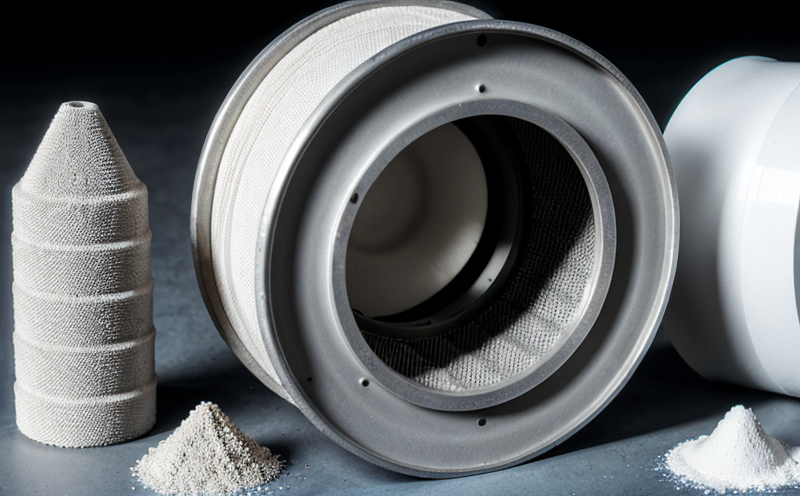IEC 60945 Certification Testing of Navigation & Radio Equipment
The International Electrotechnical Commission (IEC) Standard IEC 60945 is a crucial document that sets the performance and safety requirements for navigation and radio equipment. This standard ensures that products meet international quality standards, which are essential for compliance in marine environments where robust and reliable technology is critical.
The testing procedure outlined by this standard involves multiple stages to ensure that the equipment can withstand various environmental stresses, including humidity, salt spray, temperature fluctuations, and electromagnetic interference. Compliance with IEC 60945 not only ensures product reliability but also supports a manufacturer's reputation for delivering high-quality products.
The testing process typically begins with thorough specimen preparation, ensuring that the equipment is in its intended operational state before undergoing environmental stress tests. This includes cleaning the equipment, powering it up to ensure it operates correctly, and calibrating any necessary components. Once prepared, the equipment undergoes a series of environmental stress tests designed to replicate real-world conditions.
The IEC 60945 standard also covers specific performance criteria for navigation and radio equipment, including but not limited to, water ingress protection (IP ratings), electromagnetic compatibility (EMC), and power supply integrity. These criteria ensure that the equipment can perform reliably in challenging maritime environments. The testing apparatus used includes climate chambers capable of simulating various environmental conditions, electrostatic discharge machines to test for EMC compliance, and power supplies for assessing electrical stability.
Upon completion of these tests, detailed reports are generated, providing a comprehensive analysis of the equipment's performance under specified conditions. These reports serve as critical documents that not only support compliance with IEC 60945 but also provide valuable data for continuous improvement and product enhancement.
In summary, IEC 60945 certification testing is essential for manufacturers looking to ensure their navigation and radio equipment meets the highest international standards. By adhering to this rigorous testing process, companies can build trust with customers and regulators while enhancing their products' performance in demanding maritime applications.
Applied Standards
| Standard Number | Description |
|---|---|
| IEC 60945:1998 | Navigational safety equipment - Environmental testing methods for electrical and electronic equipment |
| ISO 12217-3:2015 | Environmental conditions and test procedures for navigation sensors, systems, and related equipment - Part 3: Salt fog test procedure |
Quality and Reliability Assurance
The rigorous testing process mandated by IEC 60945 ensures that navigation and radio equipment performs reliably under a wide range of conditions. This is particularly important in the marine sector, where environmental factors can significantly impact equipment performance. By adhering to these standards, manufacturers can ensure that their products meet international quality benchmarks, thereby enhancing customer confidence.
The testing process includes several key components designed to simulate real-world scenarios. For instance, climate chambers are used to replicate extreme temperature changes and humidity levels found in maritime environments. Additionally, electrostatic discharge machines test the equipment's resilience against electromagnetic interference (EMI), a common issue in naval applications. Power supplies are also critical for assessing the stability of the electrical components under varying power conditions.
The results of these tests provide invaluable data that can be used to improve product design and manufacturing processes. By identifying any weaknesses or areas for improvement, manufacturers can implement targeted enhancements, leading to more robust and reliable products. This not only enhances compliance with international standards but also contributes to the overall quality assurance strategy.
In conclusion, the comprehensive testing process outlined by IEC 60945 is essential for ensuring that navigation and radio equipment meets the highest quality standards. By adhering to these rigorous processes, manufacturers can build trust with customers and regulators while delivering products that perform reliably in demanding maritime applications.
Customer Impact and Satisfaction
The IEC 60945 certification process has a significant impact on customer satisfaction within the marine equipment sector. Compliance with these standards ensures that manufacturers deliver products that are not only reliable but also meet international quality benchmarks, which is crucial in a competitive global market.
Customers benefit from several key advantages when purchasing IEC 60945 certified navigation and radio equipment:
- Enhanced Reliability: Products that comply with these standards are designed to perform reliably under challenging environmental conditions, ensuring continuous operation in critical applications.
- Increased Trust: The certification process provides assurance that the products meet stringent international quality standards, thereby enhancing customer trust and confidence.
- Regulatory Compliance: Meeting these standards ensures compliance with regulatory requirements, simplifying the procurement process for customers operating in different regions.
- Better Product Design: The rigorous testing process identifies any potential weaknesses or areas for improvement, leading to more robust and reliable product designs.
By choosing IEC 60945 certified products, customers can be assured of receiving high-quality equipment that meets the highest international standards. This not only enhances customer satisfaction but also supports a manufacturer's reputation for delivering reliable and compliant products.





